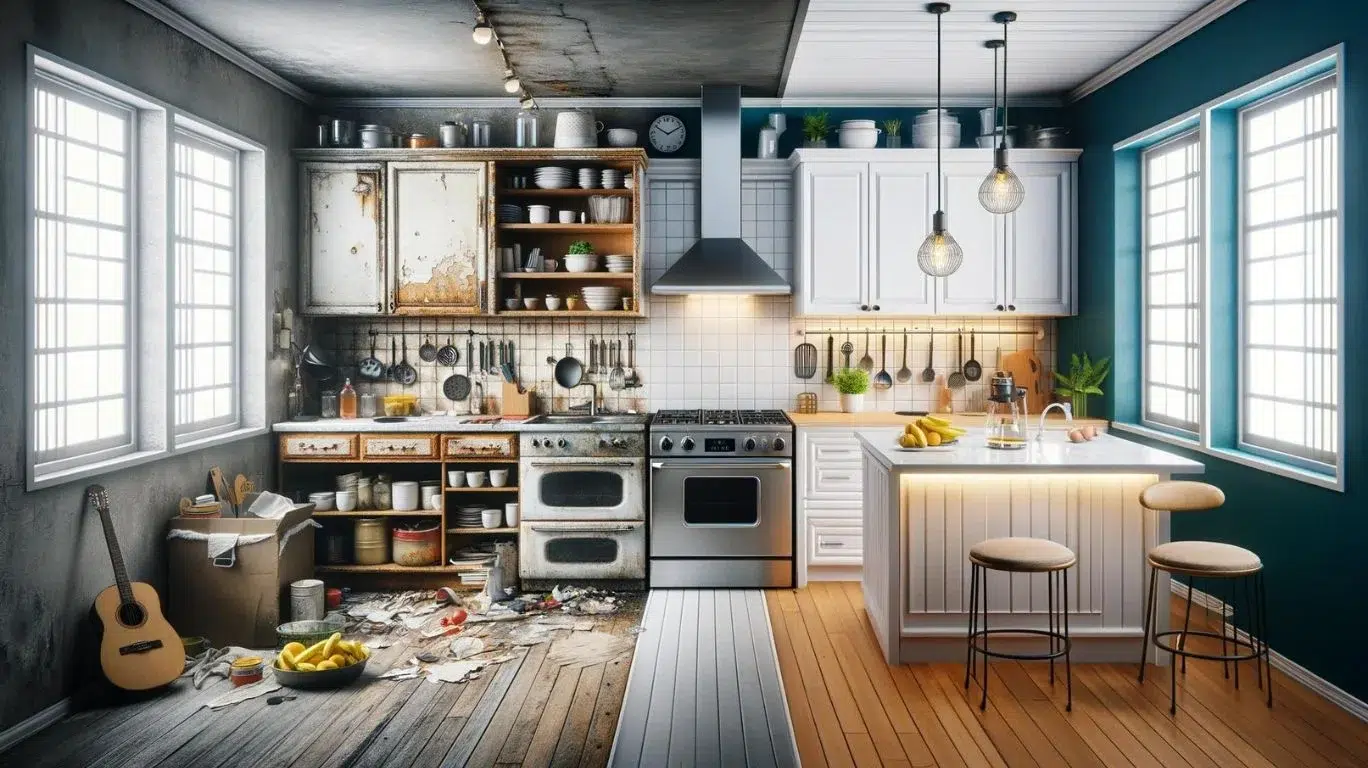Home renovations are a significant undertaking that requires careful planning and execution. Whether upgrading your kitchen, enhancing your bathroom, or improving the overall layout of your house, smart strategies can make the process smoother and more successful. This article explores essential tips, creative ideas, and common pitfalls to avoid when renovating your home.
1. Define Your Goals and Budget
Before starting any renovation project, it is essential to define your objectives clearly. Ask yourself:
- What do you want to achieve with this renovation?
- Are you looking to increase functionality, improve aesthetics, or boost resale value?
- How much can you realistically afford to spend?
Once your goals are clear, create a detailed budget. Ensure to include costs for materials, labor, permits, and unexpected expenses. Having a clear plan helps you stay focused and prevents overspending.
2. Prioritize Renovations Based on Impact
Not all renovation projects have the same impact. Prioritize upgrades that add the most value or address pressing issues. For example:
- Kitchen Renovations: Upgrading countertops, cabinets, and appliances can significantly increase your home’s value.
- Bathroom Improvements: Adding modern fixtures or a walk-in shower can enhance functionality.
- Energy Efficiency: Installing insulation, energy-efficient windows, and solar panels can reduce utility bills in the long run.
3. Plan for Functionality and Flow
Ensure that the renovation improves the flow and functionality of your home. Consider:
- Traffic Patterns: Avoid creating cramped spaces or blocking natural pathways.
- Storage Needs: Incorporate storage solutions like built-in shelves or under-stair drawers.
- Future Needs: Plan for the long term by designing adaptable spaces, especially if you anticipate family size or lifestyle changes.
4. Hire the Right Professionals
While DIY projects can save money, hiring professionals is crucial for more complex renovations. When choosing contractors or designers:
- Check references and reviews.
- Verify licenses and insurance.
- Request detailed estimates and timelines.
- Ensure clear communication throughout the process.
5. Embrace Creative Design Ideas
Here are some creative ideas to elevate your renovation project:
- Open-Concept Layouts: Remove unnecessary walls to create spacious, airy interiors.
- Accent Walls: Use bold colors or textured materials to add character.
- Smart Home Features: Integrate technology like smart thermostats, lighting, and security systems.
- Multi-Functional Furniture: Opt for pieces like fold-out beds or extendable tables to maximize space in smaller rooms.
6. Avoid Common Renovation Mistakes
To ensure your project stays on track, avoid these common pitfalls:
- Skipping Permits: Failing to secure the necessary permits can result in fines or having to redo work.
- Ignoring Structural Issues: Address foundational problems or leaks before cosmetic upgrades.
- Rushing the Planning Phase: Inadequate planning often leads to costly mistakes and delays.
- Over-Customizing: Avoid making overly specific design choices that might not appeal to future buyers.
7. Incorporate Sustainability
Eco-friendly renovations not only benefit the environment but can also save money over time. Consider:
- Using recycled or sustainable materials.
- Installing energy-efficient lighting and appliances.
- Harvesting rainwater for irrigation.
- Choosing low-VOC paints to improve indoor air quality.
8. Set Realistic Timelines
Home renovations often take longer than expected. Build a buffer into your timeline to account for delays in materials, weather conditions, or unforeseen challenges. Clear communication with your contractor can also help set realistic expectations.
9. Manage Your Living Arrangements
If your renovation project affects key areas like the kitchen or bathrooms, plan your living arrangements accordingly. Options include:
- Setting up temporary cooking stations.
- Using a spare bathroom or renting portable facilities.
- Staying with friends or family during extensive renovations.
10. Enhance Outdoor Spaces
Don’t overlook outdoor areas when planning your renovation. Improvements like adding a deck, landscaping, or installing outdoor lighting can boost curb appeal and create additional living space.
11. Leverage Technology for Design and Planning
Utilize apps and software to visualize your renovation plans. Many tools allow you to experiment with layouts, colors, and materials before making any decisions. This step can save time and prevent costly mistakes.
12. Plan for Efficient Energy Use
Energy-efficient homes are not only cost-effective but also environmentally responsible. Focus on:
- Insulating walls and attics.
- Installing energy-efficient windows and doors.
- Upgrading to energy-efficient HVAC systems.
- Adding solar panels or other renewable energy sources.
13. Personalize While Keeping Resale Value in Mind
While it’s important to add personal touches to your home, avoid making changes that might deter potential buyers in the future. For example:
- Stick to neutral color schemes for walls and flooring.
- Invest in timeless designs for kitchens and bathrooms.
- Avoid removing essential rooms like bedrooms or garages.
14. Monitor Your Budget Closely
Track your expenses throughout the project to avoid going over budget. Keep a contingency fund for unexpected costs, and regularly compare actual spending to your original estimates.
15. Stay Involved in the Process
Even if you’ve hired professionals, stay engaged in the renovation process. Regular site visits and open communication with your contractor can help ensure the project meets your expectations.
Conclusion
Home renovations can transform your living space and increase its value when done right. By planning carefully, prioritizing key areas, and avoiding common mistakes, you can achieve a successful renovation that meets your needs and stays within budget. Whether you’re updating a single room or undertaking a full home makeover, these strategies will help you navigate the process effectively.
FAQs
1. How long does a typical home renovation take?
The timeline depends on the scope of the project. Minor renovations might take a few weeks, while major renovations can last several months.
2. Do I need permits for home renovations?
Permits are often required for structural changes, electrical work, or plumbing. Check with your local authorities to ensure compliance.
3. How can I save money on renovations?
Focus on high-impact areas, consider DIY for smaller tasks, and shop around for the best deals on materials.
4. What should I do if my renovation project goes over budget?
Identify non-essential elements that can be postponed or scaled back. Communicate with your contractor to find cost-saving solutions.
5. How can I ensure my renovation increases property value?
Invest in kitchens, bathrooms, and energy-efficient upgrades. Avoid overly personalized designs that might not appeal to future buyers.





